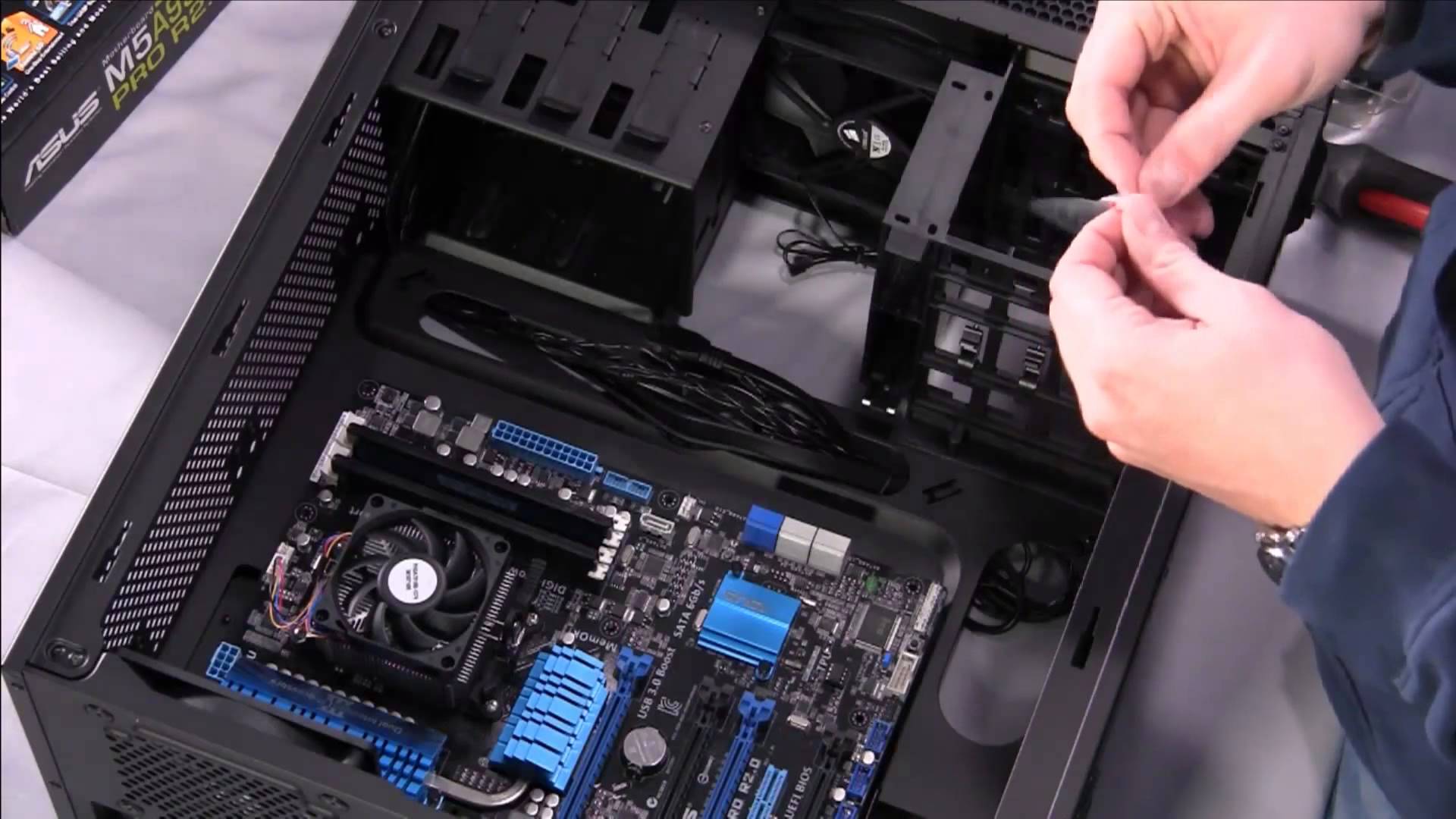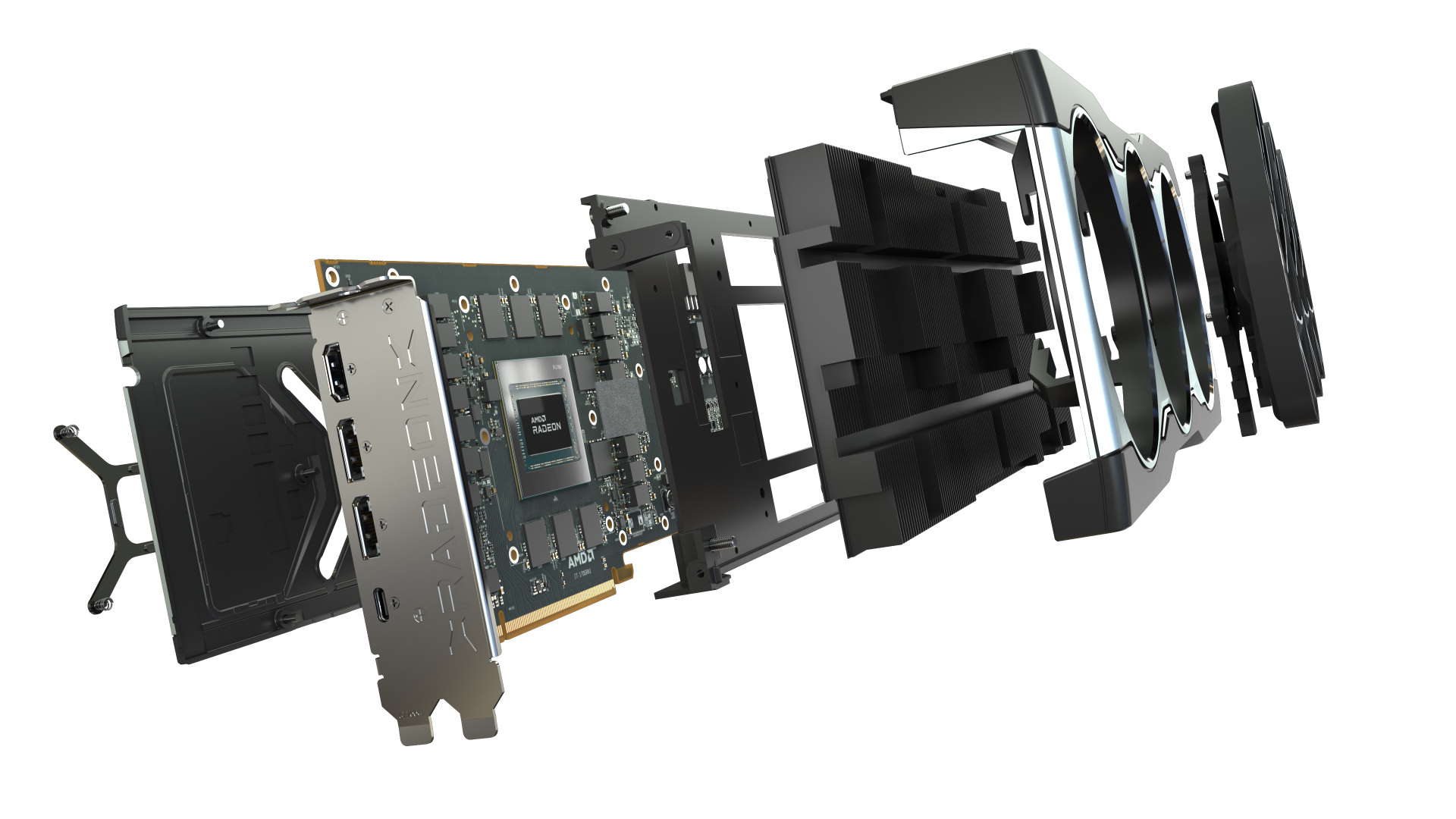
We all know the glory of an extravagant gaming rig - the lights, the tubing, the sheer unadulterated power. And you probably already know that building a PC yourself is cheaper than buying a pre-built gaming PC. But that’s not all that makes a hand-crafted rig so special. Those of you with an affinity for all things that buzz and whirr, from ginormous Nvidia RTX 3080 cards to dinky NVMe SSDs, should know there's nothing quite like putting all the pieces together with your own hands.

Best CPU for gaming: the top chips from Intel and AMD
Best graphics card: your perfect pixel-pusher awaits
Best SSD for gaming: get into the game ahead of the rest
But let's go back in time for a moment. During the 1980s the world experienced the home computer boom. No longer were computers the sole property of gaudy science labs on TV - now you could get your very own VIC-20 or Commodore 64 and do your own clickety-clacking into a terminal screen from home. And at the same time, Hollywood gave us a glimpse of the technical wizardry that could now be cast from anyone’s fingertips.
Hacker movies presented stunning multi-monitor setups with scrolling green code and more beeps and boops than could have possibly been necessary, the product of some lone genius' hardware tinkering. The eyes of every young techie lit up as they realised this magic could be performed in their own homes, by their own hands. All it took was a little know-how and a willingness to get down and dirty with their hardware and software, and they could brave unknown virtual territories to the awe of all who had the honour of witnessing it.
Fast-forward to today, and there’s more technology crammed into a coin-sized CPU than there was in thousands of those chunky C64s put together. Throw in some RGB lighting, sleek hardware design, and a streamlined building process, and you have the makings of what your non-techy friends will probably think of as downright wizardry.
Maybe you're more of a tech wizard than you give yourself credit for.
But it really isn't as hard as it might seem to build your own PC. Over the years, PC parts have become so incredibly modular, and PC building so systematic, that the old saying, 'LEGO for adults', while a bit of an exaggeration, isn't actually too far from the truth. So here we have one serious advantage of building a gaming PC yourself: you get to feel like an '80s Hollywood hacker while actually engaging in glorified LEGO building—win-win.
On the other hand, it's not really LEGO, is it? And, in fact, maybe by building a gaming PC you're more of a tech wizard than you give yourself credit for.
First of all, you're not just building a computer. You're also figuring out which parts to buy that will fit together and fulfil your own specific gaming needs. Do you need PCIe 4.0, or is PCIe 3.0 just fine? An NVMe SSD, or SATA drive? And how much wattage do you really need from your power supply? The list goes on.
Keep up to date with the most important stories and the best deals, as picked by the PC Gamer team.
It's not that figuring this stuff out is difficult, it's just that it takes a bit of diligence. And once you give the process some diligence you come out the other end with a rather substantial body of knowledge.
But it's not just about being able to impress your friends with the million-and-one hardware acronyms you've learnt, it's also about the hard skills developed during the process. Installing a CPU is easy on paper, but a skilled hand makes the whole process much less risky. The seasoned PC builder's hand is far less likely to bend processor pins or spill thermal paste.

Developing these seasoned hands is incredibly useful throughout your gaming PC’s lifetime. It's quite likely that, at some point, you'll want to reapply some thermal paste, or upgrade your RAM or graphics card. If you’ve built your PC yourself, this won't feel so much like stepping into uncharted territories as it will revisiting familiar ones.
So, at the end of this building process, not only will you be able to show off to your friends and family, you'll also feel secure in the knowledge that you have a solid understanding of how your PC works, and can fix it or upgrade it at the drop of a hat.
But perhaps more importantly, you'll get to press that power button for the first time and watch your own little Frankenstein's monster come to life, and feel the satisfaction of knowing that all those components you spent so much time with are now doing the work you set for them.
Anyone who has built a gaming PC themselves knows there’s nothing quite like this feeling. Forget how much cheaper building a PC yourself is, this feeling is priceless.
PC Gamer created this content as part of a paid partnership with Currys PC World. The contents of this article are entirely independent and solely reflect the editorial opinion of PC Gamer.

Jacob got his hands on a gaming PC for the first time when he was about 12 years old. He swiftly realised the local PC repair store had ripped him off with his build and vowed never to let another soul build his rig again. With this vow, Jacob the hardware junkie was born. Since then, Jacob's led a double-life as part-hardware geek, part-philosophy nerd, first working as a Hardware Writer for PCGamesN in 2020, then working towards a PhD in Philosophy for a few years (result pending a patiently awaited viva exam) while freelancing on the side for sites such as TechRadar, Pocket-lint, and yours truly, PC Gamer. Eventually, he gave up the ruthless mercenary life to join the world's #1 PC Gaming site full-time. It's definitely not an ego thing, he assures us.

